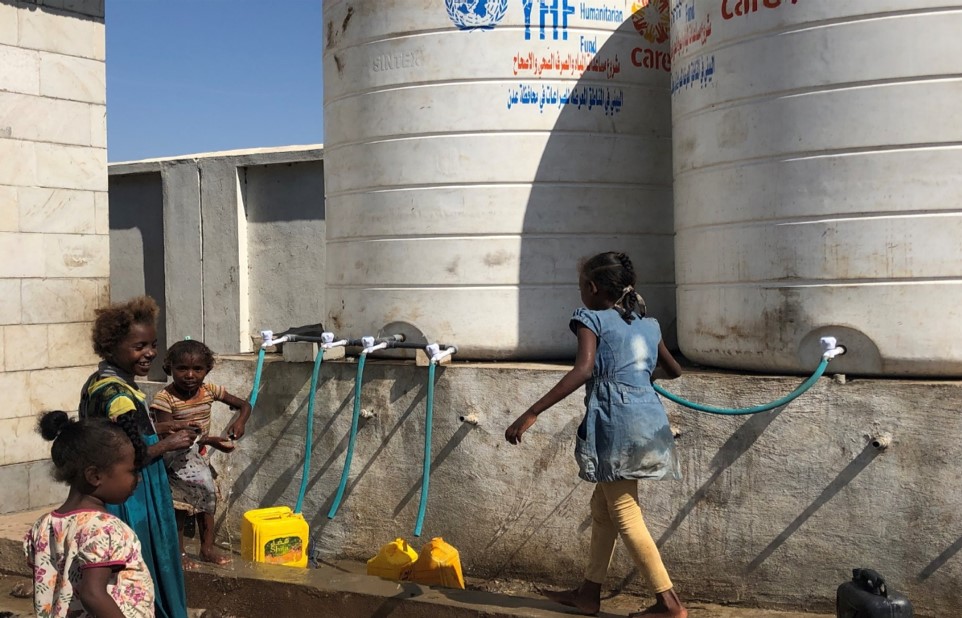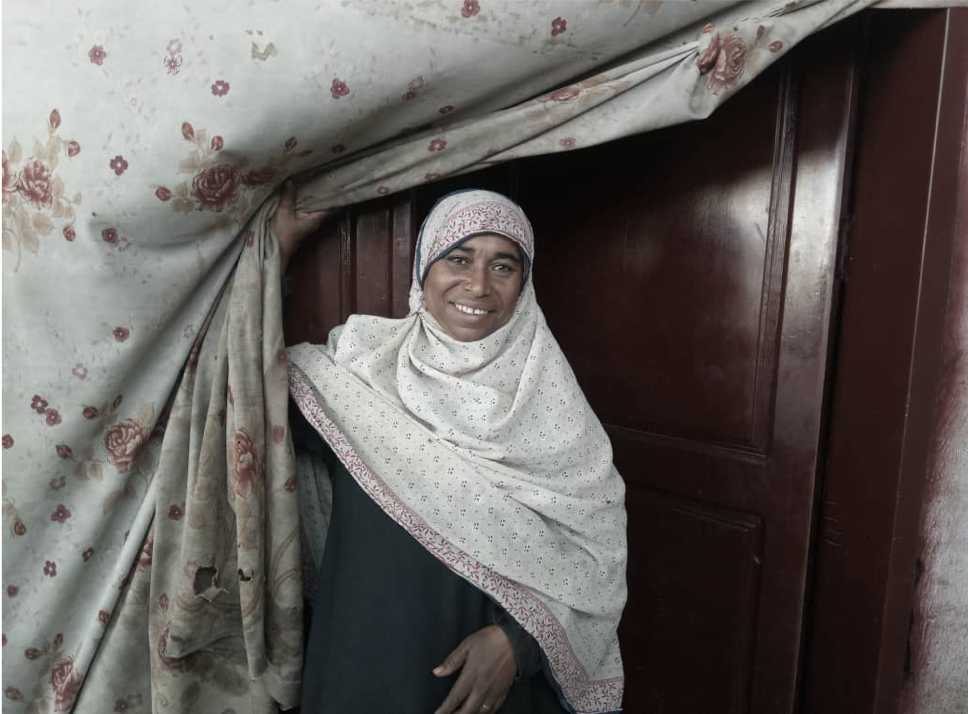Four years of war in Yemen have devastated the country, destroyed the livelihoods of millions of Yemenis, and left the population facing a catastrophic humanitarian crisis. Fighting has displaced hundreds of thousands of people whose lives were directly affected by attacks on houses, markets, hospitals and even schools.
These people fled for safety to villages which were already suffering from a lack of food and extremely hard living conditions, or to cities like Aden and Sana’a. It is a situation that is worsening day by day.
In a collective centre in Dar Saad district of Aden in the south of Yemen, the number of families who have fled from violence is increasing. More than 280 households have come from Hodeidah, Taiz and other areas affected by the ongoing crisis in Yemen. They flee to the unknown with their lives, their families and what is left of their hope. The collective centre has been taking in families since the beginning of the crisis in Hodeidah, and they are all in huge need.
“When the intensive fighting started in Hodeidah we had to flee our home and the city. At that moment we found ourselves starting from scratch, with barely anything to start our life here with,” said Kudafa, a 48-year-old displaced mother.
Finding shelter and feeding their children are not the only problems that displaced people face – access to clean water is one of the biggest issues. Young women and girls are often seen going outside to fetch water from nearby wells, which puts them in danger of contracting diseases like cholera.
“Two weeks ago my daughter suffered from severe diarrhoea, and she was vomiting,” said Kudafa. “I tried to give her a home remedy but I couldn’t stop it.”
After four years of war, Yemen is facing a third wave of cholera which is worsening the already dire humanitarian situation. The lack of a functioning health system and limited access to safe water and hygiene pose a threat to effectively controlling the spread of the disease.
With funding from the UN Office for the Coordination of Humanitarian Affairs, CARE is responding to the extremely difficult situation that people are facing in Dar Saad. CARE distributed hygiene kits to families and provided four water tanks that are filled with water from the public network and function as a safe water source for the people living in the centre. In addition, UNICEF provided a pump fuelled by solar energy to ensure that the 26,000 litre capacity tanks can be refilled from the public water network.

